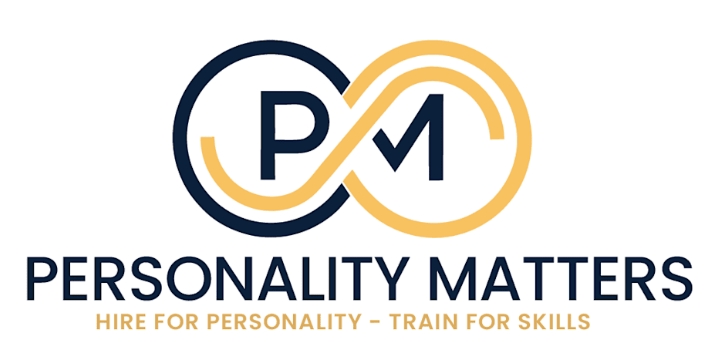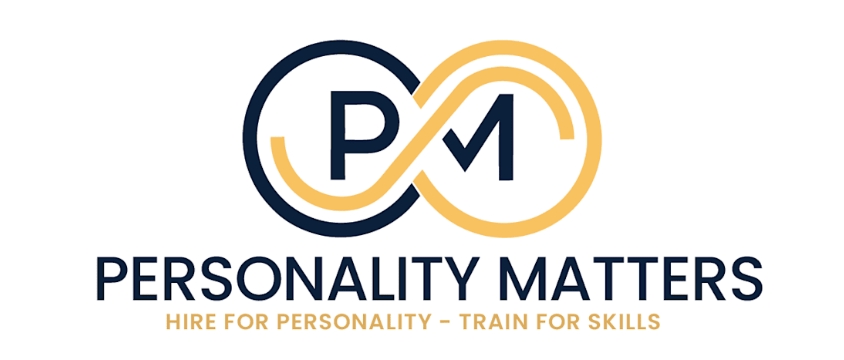When it comes to hiring for leadership positions, technical skills and experience are essential, but they don’t tell the full story. Leadership goes beyond managing projects and making strategic decisions—it’s about inspiring teams, fostering collaboration, and steering the organization through challenges. At leadership levels, the personality of an individual plays a significant role in determining their effectiveness as a leader. That’s why personality hiring has become an essential tool in identifying top leadership talent.
Personality hiring focuses on evaluating key personality traits and behavioural patterns to assess how well a candidate will align with the company’s values, culture, and long-term goals. In leadership roles, it’s not just about what a person knows, but how they approach challenges, communicate with others, and inspire those around them. Let’s dive into how personality hiring can have a profound impact on hiring and developing leadership-level roles within an organization.
- Enhancing Leadership Styles and Team Dynamics
Leaders are the driving force behind a team’s success, and how they manage, communicate, and motivate their team can determine the team’s performance. Different leadership styles—whether transformational, transactional, or servant leadership—are suited to different types of teams and organizational cultures. But personality plays a crucial role in determining which leadership style is most effective.
Personality hiring allows recruiters to assess traits such as empathy, assertiveness, emotional intelligence, and adaptability—all of which directly influence leadership style. For instance:
- Empathy is crucial for leaders who need to connect with employees on a human level and create a positive, supportive work environment.
- Assertiveness is vital for making tough decisions and maintaining confidence during challenging times.
- Adaptability helps leaders navigate change and guide their teams through periods of uncertainty.
By assessing these traits through personality hiring, organizations can ensure that their leadership team is equipped with the right mix of traits to drive team engagement and success. In addition, understanding leadership style early on helps ensure that leaders can foster better relationships, create high-performing teams, and enhance workplace satisfaction.
- Improving Decision-Making and Conflict Resolution
One of the core responsibilities of leadership is decision-making, often under pressure or with incomplete information. Leaders must be able to make difficult choices that align with the organization’s goals while considering the broader impact on the team and stakeholders.
Personality assessments can provide valuable insights into how a candidate approaches decision-making. For example, a leader with a strong sense of conscientiousness may be diligent in analyzing data and considering all possible outcomes before making a decision. On the other hand, a leader with high openness might be more willing to take creative risks or explore unconventional solutions.
Conflict resolution is another area where personality traits are essential. Leaders must be able to mediate conflicts, address challenges between team members, and make decisions that promote unity. Traits like empathy, emotional intelligence, and agreeableness are critical for managing interpersonal conflicts and creating a collaborative environment. By assessing these personality traits during the hiring process, organizations can ensure that their leaders have the right capabilities to manage conflict effectively and maintain a positive, productive team dynamic.
- Fostering Company Culture and Employee Engagement
Leaders are the stewards of company culture. They set the tone for how employees engage with one another, interact with clients, and contribute to the organization’s mission. The right leader can inspire their team, create a sense of purpose, and establish an environment where employees are motivated to give their best effort.
Personality hiring can help identify candidates whose personality aligns with the values and culture of the organization. For instance, a leader with high levels of emotional intelligence and social skills will be better equipped to communicate the company’s vision, support employee development, and inspire loyalty. Leaders who understand how to foster an inclusive and positive environment will naturally attract engaged, motivated employees who feel valued and connected to the company’s mission.
Moreover, the leadership style that emerges from personality hiring can directly impact employee engagement. Leaders who possess traits such as confidence, optimism, and motivation are often able to uplift and energize their teams, resulting in higher morale and performance. By selecting leaders with the right personality traits, organizations can create environments that foster long-term engagement, retention, and organizational success.
- Aligning Leadership with Organizational Goals
A leader’s ability to align their team’s efforts with the organization’s strategic goals is a key determinant of success. Leaders need to be able to think critically, set clear goals, and make strategic decisions that will drive the organization forward. However, it’s not just about being task-focused—leaders need to have a clear understanding of the company’s values, mission, and vision to inspire others to follow.
Personality hiring helps determine whether a leader is naturally inclined to align their goals with the larger organizational mission. Visionary leaders, who are high in traits such as openness to experience and creative thinking, can drive innovation and growth. Conversely, pragmatic leaders who are more conscientious and detail-oriented might excel at executing the organization’s established strategies and ensuring that long-term goals are met efficiently.
Personality hiring gives recruiters the tools to ensure that leaders can match their style with the company’s broader strategic objectives. This results in more cohesive leadership and better alignment of organizational goals, driving stronger business outcomes.
- Predicting Long-Term Leadership Potential
When hiring for leadership positions, companies are not just looking for someone to fill a role in the short term—they need a leader who will grow with the organization and take it to new heights. Leadership development is a long-term investment, and selecting candidates based on their potential for growth is key to future success.
Personality hiring helps identify candidates with the traits necessary for leadership development, including the ability to adapt to change, manage stress, and remain calm under pressure. Personality traits like resilience, growth mindset, and learning agility are strong indicators of leadership potential. Candidates who possess these qualities are more likely to continue growing in their leadership abilities over time, taking on increasingly important roles within the organization.
By evaluating candidates not only for their current capabilities but also for their potential to evolve as leaders, organizations can make smarter investments in their leadership pipeline, ensuring they have the right leaders in place for the future.
- Reducing Leadership Mis-hires
The impact of a leadership mis-hire can be devastating. It can lead to decreased employee morale, misalignment of organizational goals, and a lack of direction. The cost of a mis-hire, particularly in leadership roles, is often much higher than hiring for lower-level positions, with estimates suggesting that a poor leadership hire can cost up to 10 times their annual salary in lost productivity and other associated costs.
Personality hiring helps minimize this risk by providing recruiters with a clearer understanding of how a candidate’s personality will mesh with the demands of the leadership role. Rather than relying on resumes or interviews alone, personality assessments provide deep insights into a candidate’s behavior, values, and approach to leadership. This data-driven approach helps ensure that leadership hires are a better fit for both the role and the company, reducing the likelihood of mis-hires and the costly consequences that follow.
Conclusion
At the leadership level, success is not just about technical expertise—it’s about the ability to inspire, guide, and align teams with the organization’s goals. Personality hiring offers significant advantages by evaluating the traits and behaviors that contribute to effective leadership. By assessing qualities like emotional intelligence, adaptability, decision-making style, and alignment with company culture, organizations can ensure they hire leaders who will thrive in the role and drive long-term success.
In a world where leadership demands are more complex and diverse than ever, personality hiring provides a comprehensive framework to identify leaders who have the skills, temperament, and potential to lead with impact. By prioritizing personality fit in leadership recruitment, organizations can build a strong, dynamic leadership team that is ready to navigate the challenges of the modern business world and take the company to new heights.














